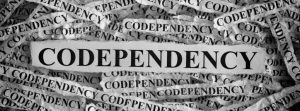Codependency- Fighting Myths with Information

There are myths and misconceptions about what codependency is and what it is not. Codependency is not an official mental health diagnosis (it is not a clinical disorder in the DSM-V); it is a dysfunctional type of relationship pattern or pattern of behaviors. The root of it is a basic need for interdependence that gets muddled by a fear of loss or a need to control; it is the need to control the external world in the hopes that it will change how we feel internally. We live in a culture and, as attorneys, work in a profession that can actually encourage codependency. Therefore, you will most likely come across codependent behavior in yourself, your personal life, or your professional life.
Codependency can occur within all relationships and more frequently when one or both partners struggle with addiction, a mental health disorder, a physical illness, or legal issues. It is also common with individuals who are exposed to conflict as children; they grow up believing that their feelings and behaviors and connection with others can help them manage the outcome of a situation. There is a Codependency Assessment Tool (Friel) that assesses common factors in those who are struggling with codependency (e.g., feeling neglected; having low self-worth). Assessment or self-reflection is a great tool, but what are some other myths?
Codependency is not a synonym for “clingy” or “needy;” codependency is more significant that those terms and behaviors. Clingy or needy refers to someone who likes to spend most or all of their time with a person but does not imply that the clingy individual is neglecting his/her own needs. Codependency is about people who obsessively care, worry, or assume responsibility for meeting the needs of another person to the extent their well-being and personal needs are ignored. Individuals who are codependent are held tethered to the dysfunctional relationship to maintain their personal sense of well-being, happiness, and self-esteem (e.g., if you are happy, then I am happy). Even if a person exhibiting codependent traits has had a difficult day or something significant happen in his/her life, it is often put on the back burner in favor of the other person.
Codependency is not all-or-nothing. It is not linear; there aren’t any “official” standards that state someone is codependent; it is not a clinical diagnosis. There is a spectrum of behaviors which indicate codependency, and a person may exhibit these behaviors with varying severity and frequency depending on the time, circumstances, individuals involved, and situations. The extent of codependent behaviors does vary from someone occasionally try to “fix” another’s problem(s) to someone being completely consumed by another’s behaviors, choices, and happiness and being singularly focused on rescuing that person and preventing him/her from experiencing consequences.
Most dangerous myth is that a person cannot recovery from codependency. As this is a behavioral trait, it can be modified with treatment, including individual or group therapy. Treatment can help identify triggers, focus on your emotional health, and address your behaviors. Individuals in treatment can explore their behaviors, choices and old ideas, and how they are tied to their childhood/adult abuse/trauma and learn ways to have a deep connection with themselves as well as with others. It is possible to grow and learn what you want in a relationship, instead of going into a relationship blinded, expecting to find a sense of self there. Awareness is critical to change; treatment works and can help. There are support groups too, including Codependents Anonymous (www.CoDa.org).
If you have any other questions, or would like a referral, please reach out to VJLAP. We are here to help.
Resources:
